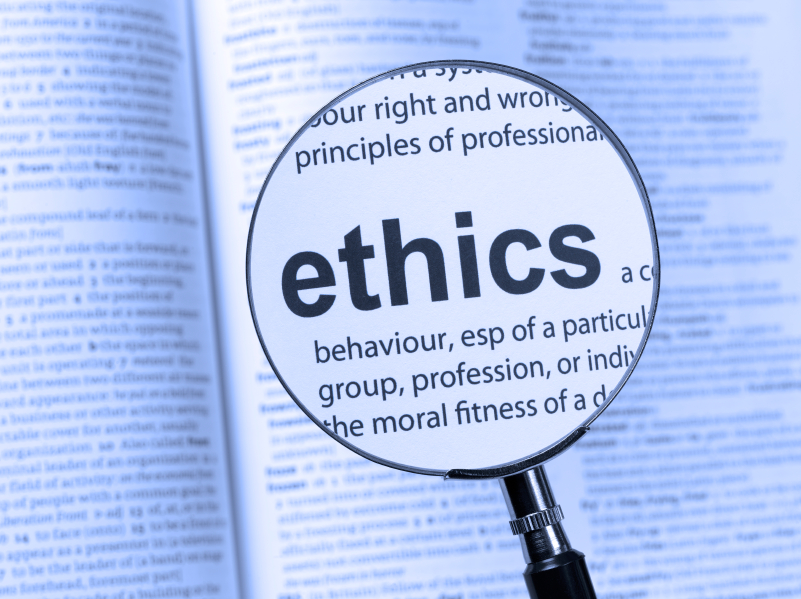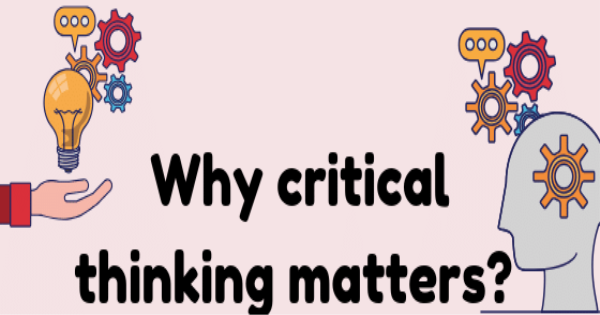Ethical behavior is the foundation of a harmonious society. It governs our interactions, decisions, and responsibilities toward others. Ethics are essential in both personal and professional life, ensuring trust, fairness, and respect. This article explores the significance of ethical behavior in daily life, its benefits, and its role in shaping a better world.
Ethical values influence how we act in various situations, affecting our relationships, workplaces, and communities. Ethical behavior is not just about following laws; it is about making morally sound decisions that align with integrity and justice. As societies evolve, the importance of ethics continues to grow, shaping how individuals interact and progress together.

What is Ethical Behavior?
Ethical behavior refers to actions and decisions based on moral principles such as honesty, integrity, fairness, and accountability. It involves treating others with respect, making just choices, and adhering to societal norms of right and wrong. Ethical conduct ensures that individuals act in a way that benefits both themselves and those around them.
Principles of Ethical Behavior
| Principle | Description |
|---|---|
| Honesty | Being truthful in words and actions. |
| Integrity | Upholding strong moral values consistently. |
| Fairness | Treating everyone equally and justly. |
| Responsibility | Accepting accountability for one’s actions. |
| Respect | Valuing others’ rights and opinions. |
| Compassion | Showing kindness and concern for others. |
| Loyalty | Being faithful to ethical commitments and responsibilities. |
Importance of Ethical Behavior in Daily Life
Ethical behavior has a profound impact on various aspects of life, including personal relationships, workplaces, and society as a whole. Living ethically leads to trust, stability, and respect in all interactions.
1. Ethics in Personal Life
Ethics guide personal choices and relationships, helping individuals maintain trust and harmony. Ethical people cultivate positive habits, such as honesty and empathy, which strengthen bonds with family, friends, and community members.
Examples of Ethical Behavior in Personal Life:
-
Being honest with family members.
-
Respecting others’ privacy and opinions.
-
Keeping promises and commitments.
-
Practicing kindness and generosity.
-
Avoiding deceit and manipulation.
2. Ethics in the Workplace
In professional settings, ethical behavior promotes a healthy work culture. Employees who act ethically contribute to a company’s success and reputation. A workplace that prioritizes ethics ensures fairness, motivation, and mutual respect among colleagues.
Examples of Workplace Ethics:
| Ethical Principle | Workplace Example |
| Honesty | Reporting accurate work hours and data. |
| Integrity | Standing up against corruption and dishonesty. |
| Fairness | Providing equal opportunities to all employees. |
| Respect | Valuing coworkers’ ideas and perspectives. |
| Accountability | Taking responsibility for mistakes and rectifying them. |
3. Ethics in Business
Businesses that follow ethical practices build customer trust and long-term success. Ethical business operations focus on transparency, fairness, and social responsibility. A company that values ethics earns credibility and attracts loyal customers.
Benefits of Ethical Business Practices:
-
Enhances customer loyalty.
-
Improves brand reputation.
-
Reduces legal risks and penalties.
-
Encourages employee satisfaction and productivity.
-
Contributes to sustainable and fair economic growth.
4. Ethics in Society
A society that values ethics enjoys stability and growth. Ethical citizens respect laws, uphold justice, and contribute positively to their communities. When individuals act ethically, society as a whole benefits from fairness and cooperation.
Ethical Responsibilities in Society:
-
Following laws and regulations.
-
Being kind and helpful to others.
-
Avoiding discrimination and prejudice.
-
Participating in community service and social causes.
Benefits of Ethical Behavior
Ethical behavior has numerous advantages for individuals, businesses, and society. Ethical living fosters harmony, builds trust, and leads to long-term success.
| Benefit | Description |
| Trust | Ethical individuals gain others’ trust and respect. |
| Peace of Mind | Acting ethically leads to a clear conscience. |
| Personal Growth | Encourages self-improvement and learning. |
| Social Stability | Creates a just and peaceful society. |
| Career Success | Ethical employees are valued and promoted. |
| Better Decision-Making | Leads to thoughtful and fair choices. |
| Positive Reputation | Ethical individuals and organizations earn public trust. |
Challenges to Ethical Behavior
Despite its importance, ethical behavior can be challenging due to various factors.
Common Ethical Dilemmas:
-
Conflicts of Interest – When personal gain conflicts with moral values.
-
Peer Pressure – Influence from others to act unethically.
-
Greed and Selfishness – Prioritizing personal benefits over ethical principles.
-
Lack of Ethical Awareness – Not recognizing the consequences of unethical actions.
How to Overcome Ethical Challenges
-
Develop Moral Awareness – Recognize ethical issues in daily life.
-
Follow Ethical Guidelines – Adhere to codes of conduct in workplaces and communities.
-
Seek Advice – Consult mentors or ethical leaders when facing dilemmas.
-
Practice Empathy – Understand others’ perspectives to make ethical choices.
-
Hold Yourself Accountable – Take responsibility for ethical decisions.
Role of Education in Promoting Ethical Behavior
Education plays a crucial role in instilling ethical values from a young age. Schools and institutions should emphasize moral education alongside academic learning.
Ways to Promote Ethics Through Education
-
Teaching moral philosophy and ethics courses.
-
Encouraging open discussions about ethical dilemmas.
-
Incorporating ethical case studies in curricula.
-
Leading by example through ethical teaching practices.
-
Engaging students in social responsibility projects.
Related Articles
-
 Ilmkidunya 05/Aug/2025
Ilmkidunya 05/Aug/2025How to Choose the Right Career Path as a Student
-
 Ilmkidunya 01/Aug/2025
Ilmkidunya 01/Aug/2025Trusted Education Consultants in Pakistan – Students Club
-
 Ilmkidunya 01/Aug/2025
Ilmkidunya 01/Aug/2025How Entry Test Patterns Are Changing in 2025
-
 Ilmkidunya 01/Aug/2025
Ilmkidunya 01/Aug/2025How to Prepare for University Admissions in 2025
-
 Ilmkidunya 27/Jul/2025
Ilmkidunya 27/Jul/2025Study vs. Skill: What Really Gets You Hired in 2025
-
 Ilmkidunya 27/Jul/2025
Ilmkidunya 27/Jul/2025Top 5 Career Options After FSC (Pre-Medical) in 2025
-
 Ilmkidunya 17/Jul/2025
Ilmkidunya 17/Jul/20255 Jobs for Computer Science & IT Students That Do Not Need Programming
-
 ilmkidunya 11/Jul/2025
ilmkidunya 11/Jul/2025Understanding Aptitude and Its Role in Career Planning
-
 Ilmkidunya 08/Jul/2025
Ilmkidunya 08/Jul/2025Top 10 Universities in Lahore – 2025 Guide
-
 Ilmkidunya 01/Jul/2025
Ilmkidunya 01/Jul/2025The Future of Artificial Intelligence in the Job Market
-
 Ilmkidunya 30/Jun/2025
Ilmkidunya 30/Jun/2025How to Set and Achieve SMART Goals
-
 Ilmkidunya 23/Jun/2025
Ilmkidunya 23/Jun/2025Top 10 Engineering Degrees With The Highest Demand in 2025
-
 Ilmkidunya 13/Jun/2025
Ilmkidunya 13/Jun/2025How Internships Help Shape Career Goals
-
 Ilmkidunya 13/Jun/2025
Ilmkidunya 13/Jun/2025Why Critical Thinking Matters Today More Than Ever
-
 ilmkidunya 21/May/2025
ilmkidunya 21/May/2025Top Tips for Building a Strong Academic CV in 2025 – Even with No Experience
-
 Ilmkidunya 14/May/2025
Ilmkidunya 14/May/2025How Languages Shape the Way We Think
-
 Ilmkidunya 13/May/2025
Ilmkidunya 13/May/2025From Idea to Invention: How Students Can Be Innovators
-
 Ilmkidunya 12/May/2025
Ilmkidunya 12/May/2025How to Learn Anything Faster: Techniques Backed by Science
-
 Ilmkidunya 06/May/2025
Ilmkidunya 06/May/2025Top Programming Languages to Learn in 2025
-
 ilmkidunya 28/Apr/2025
ilmkidunya 28/Apr/2025Best Short Courses Students Can Take After Matric and Intermediate

.gif)









.png)


Share Your Comments Questions Here